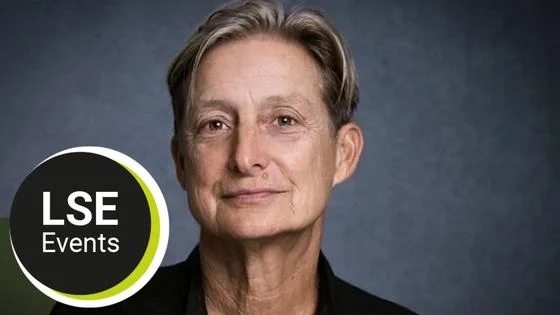
Connect
About
Clare Hemmings is Professor of Feminist Theory. She has been working at the Department of Gender Studies at the London School of Economics since 1999.
She has two main areas of research focus – feminist and queer studies – and is particularly interested in thinking through the relationship between these, as well as the ways in which both fields have been institutionalised at national and international levels. This interest has led her to think about how participants in these fields tell stories about their history as well as current form, and to explore how such stories resonate with (rather than against) more conservative agendas. Throughout her work she has been concerned with the relationship between nationalism, feminism and sexuality, and with form as well as theory. This latter interest means that all her work – from the book emerging out of her PhD thesis Bisexual Spaces (2002) to her current work in progress – uses multiple methodologies and forms to explore how knowledge is produced and how we might make it work for us.
Why Stories Matter: The Political Grammar of Feminist Theory was published by Duke University Press in 2011. It explores how feminists tell stories about feminist theory's recent past, why these stories matter and what we can do to transform them. Why Stories Matter won the FWSA (Feminist and Women's Studies Association UK and Ireland) Book Award in 2012. Considering Emma Goldman: Feminist Politics of Ambivalence and the Historical Imagination, was also published by Duke University Press. The book considers the significance of the work and life of the anarchist activist Emma Goldman (1869-1940) for contemporary feminist theory and politics. An archive-based project, it returned Clare to her literary theory roots, including a creative letter-writing project that seeks to animate and intervene in the queer and feminist archive in invested ways.
Clare has recently been gathering family stories for the project: Inheritance: A Memory Archive, which engages questions of gender, sexuality, class-transition and nation. Combining fiction and memoir, the project foregrounds the moments in family dynamics that challenge what we think we know about gender roles, sexuality and citizenship. Several essays have come out of this project: for Memory Studies and for the book Scholars and Their Kin (ed. Stéphane Gerson, 2025). She has also been active engaged in writing against ‘anti-gender’ mobilisations, often as part of the Transnational "Anti-Gender" Movements and Resistance network with Sumi Madhok. Articles from this work have appeared in Radical Philosophy and Feminist Studies.
Clare is now beginning work on a new project entitled Feminist Knowledge Struggles: Telling Stories Differently, where she proposes translatable methodologies for a range of queer feminist projects to intervene in the categorical and political certainties of the hostile present. These methods include: ‘reciting’ a feminist history of ‘sex’ to incorporate the fields’ materialist, radical and black or decolonial interrogations of it as a site of struggle; exploring ‘affective dissonance’ as a universal condition to underpin solidarity politics; developing ‘empirical fictions’ to tell contested histories of sexuality, gender and class transitional whiteness as accountability; and reading with and through grief across the intractable differences that otherwise capture and hold us in thrall.
Expertise
Interdisciplinarity, Feminist epistemology and methodology, fiction as method, Sexuality studies, Queer Feminist Theory, Black Feminist Theory, queer of color critique, anarchism
Research
Prof Hemmings has two main areas of research focus – feminist theory and sexuality studies – and is particularly interested in thinking through the relationship between these, as well as the ways in which both fields have been institutionalized at national and international levels. This interest has led her to think about how participants in these fields tell stories about their history as well as current form, and to explore how such stories resonate with (rather than against) the broader take-up of feminism and gender equality. I am particularly concerned with the ways in which ideas travel (or do not) across geographical and temporal borders, and am increasingly interested in experimenting with different forms as well as theories of intervention.
Why Stories Matter: The Political Grammar of Feminist Theory was published by Duke University Press in 2011. It explores how feminists tell stories about feminist theory's recent past, why these stories matter and what we can do to transform them. Challenging the frequent assumption that take-up of feminist narratives for conservative agendas is a lamentable co-optation, Prof Hemmings suggest that the form of feminist storiesproduces such amenability. The part of this work that I like the most, though, is where I seek to intervene in these stories, to realign their political grammar to allow a different vision of a feminist past, present and future. This pleasure is partly because it best reflects my interdisciplinary background in literary criticism as well as sociology. Why Stories Matter won the FWSA (Feminist and Women’s Studies Association UK and Ireland) Book Award in 2012, and I continue to lecture on its main themes.
Her monograph 'Considering Emma Goldman: Feminist Politics of Ambivalence' was published by Duke University Press in October 2017. The book considers the significance of the work and life of the anarchist activist Emma Goldman (1869-1940) for contemporary feminist theory and politics. An archive-based project, she initially wanted to continue the work in Why Stories Matter to explore a new way of telling a different set of stories about feminism’s present: ones that do not rely on identity, and do not separate sexuality and economics, and have long been internationalist. But in the course of my research she realized that she is at least as interested in the strands we would prefer to leave behind in Goldman’s thinking: her essentialism, her viciousness to women (and men), and her vexed relationship to race politics. Attention to these aspects of her thought interrupt contemporary feminist thought in rather different ways, and suggest a feminist politics that addresses directly some of the difficulties – of femininity, race and the human – that she believes need urgent attention. The project returns me to my literary theory roots in a different way to the 2011 project, insofar as it includes a creative letter-writing project that seeks to animate and intervene in the sexual archive.
Teaching
Teaching
PhD supervision
Currently a member of the PhD supervisory teams of Rawda Elaskary, Naomi Cohen and Chloe Vaast.

